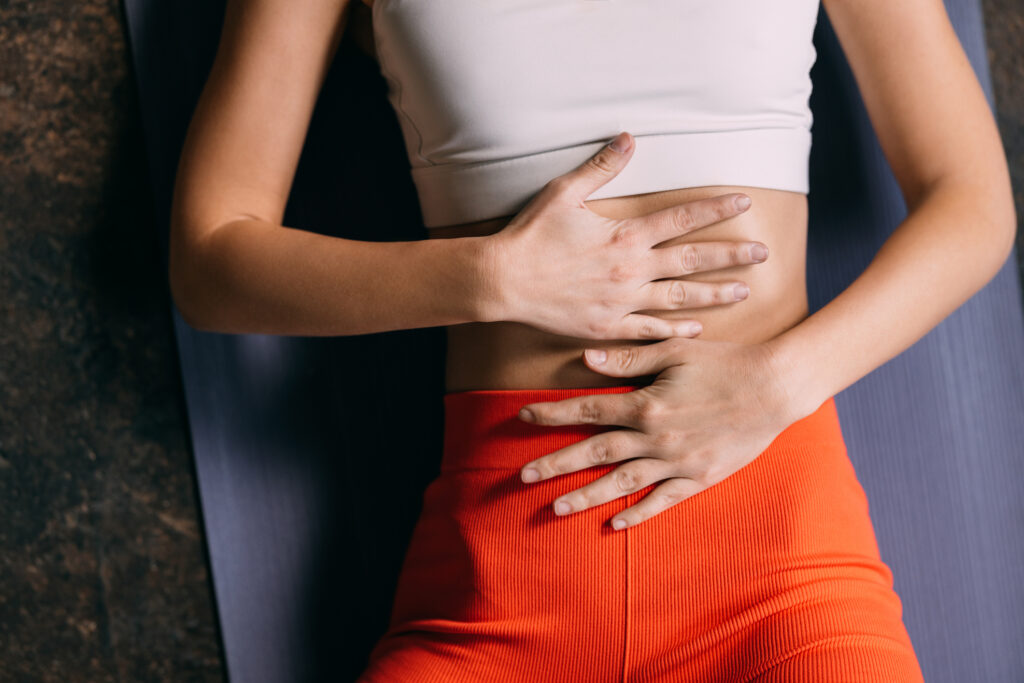Your Posture Might Be Affecting Your Digestion
18 April 2024

Have you ever finished a reasonably-sized meal only to feel like you’ve eaten a whole hippo? If bloating and discomfort after eating sound familiar, you might be quick to blame the usual suspects like gluten or dairy. However, these symptoms can often stem from an unexpected source—your posture. Interestingly, poor posture not only affects your digestive system but can also contribute to back pain.
The Surprising Connection Between Posture and Digestion
Yes, you read that right—posture. It might seem unlikely, but the way you sit or stand significantly affects how your body digests food. Good posture ensures optimal blood flow, which is crucial for digestion. Conversely, poor posture can disrupt this process, leading to sluggish digestion and that dreaded bloated feeling. Consider the post-Christmas dinner lethargy; it’s a prime example of your body redirecting blood to handle the heavy lifting of digestion, leaving you feeling sluggish.
How Poor Posture Affects Your Gut
Poor sitting habits, like slouching, not only affect your spine but also compress your stomach and intestines, limiting the space your food has to move. This compression can hinder the normal function of your gastrointestinal tract.
Key Culprit: The Diaphragm
The diaphragm, a major muscle located at the base of your lungs, plays a pivotal role in digestion. It helps move food through your esophagus but needs to contract and relax smoothly. If your posture is poor, it places unnatural tension on the diaphragm, leading to potential issues like acid reflux and increased bloating.
Fashion’s Role in Digestion
What you wear can also impact your digestion. Tight clothing around the waist—think high-waisted jeans or belts—can further restrict your stomach and exacerbate issues. It’s no wonder loosening the belt after a meal feels so relieving. Despite abandoning corsets, modern fashion often still sacrifices comfort for style, compressing our organs under tight garments.
Improving Your Posture for Better Digestion
If you frequently experience digestive discomfort, paying attention to your posture could be key. Here’s how you can start making changes:
1. Mind Your Sitting Posture
When eating, make sure to sit up straight and avoid compressing your abdomen as much as possible. Opting for a chair that allows you to sit with your legs at an open angle rather than a strict right angle can also help free up more space for your digestive organs.
2. Consider Standing
Though it might go against conventional table manners, standing while eating—or at least shortly after—can improve the way your body processes food. Studies have shown that standing aids in faster and more effective digestion compared to sitting slouched over.
3. Watch Your Wardrobe
Be mindful of how tight your clothing is around your stomach area, especially during meals. Opt for looser, more comfortable outfits that don’t put pressure on your abdomen.
4. Incorporate Gentle Movement
Light activities such as walking after a meal or performing gentle yoga can help stimulate digestion and improve overall gut health.
5. Natural Aids
Consider natural supplements like ginger capsules or peppermint oil, which can promote digestion and reduce gas and bloating.
6. Hydrate and Fibre Up
Drinking plenty of water and eating a fibre-rich diet are fundamental for maintaining a healthy digestive system. Fibre-rich foods include fruits, vegetables, nuts, and whole grains.
To further enhance your posture and overall well-being, consider visiting our chiropractic clinics and exploring our massage therapy services. Both can play a crucial role in maintaining optimal body alignment and improving your digestive health. For more detailed insights on the impact of posture on digestion, you might find these resources helpful:
